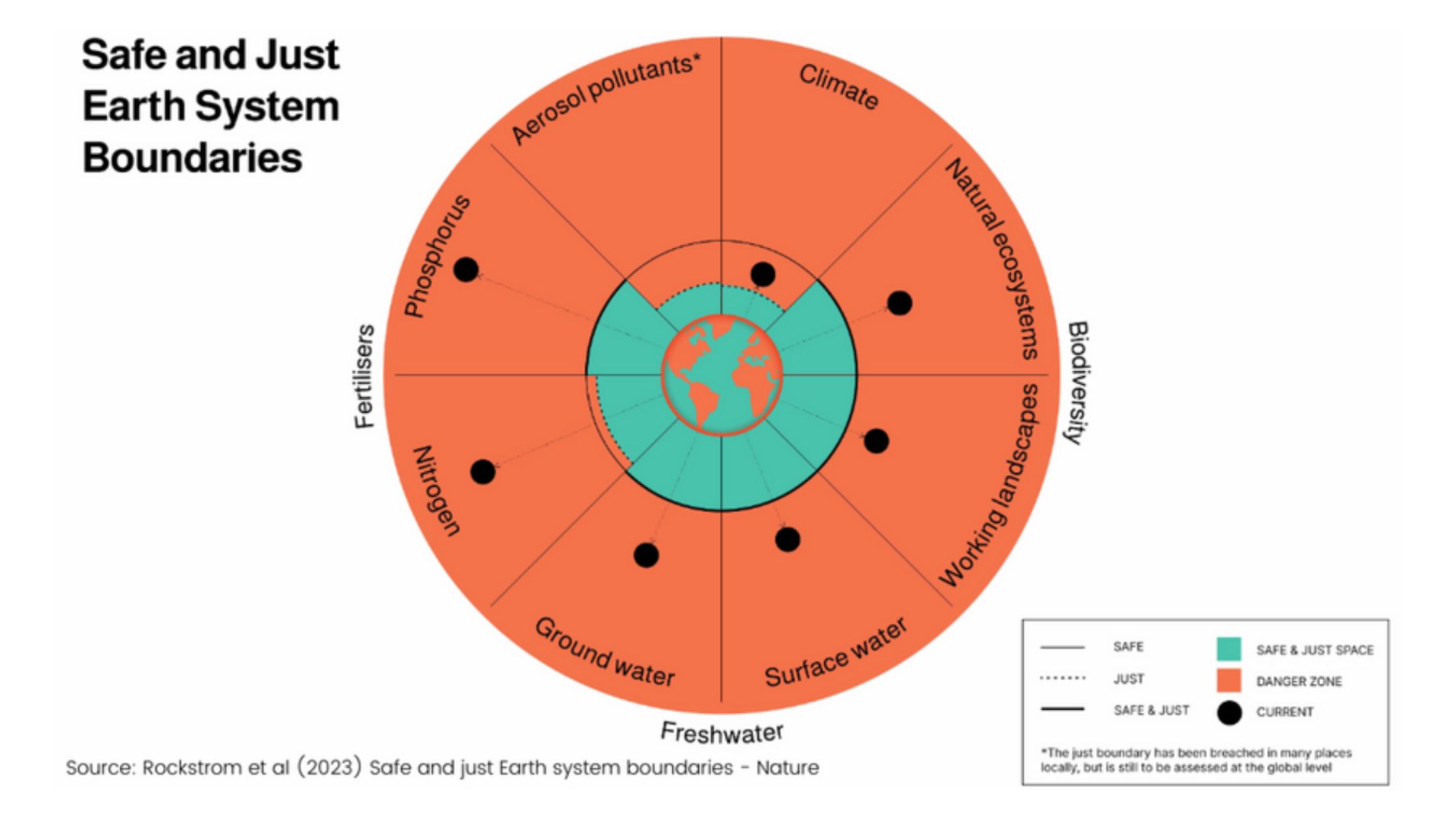
Earth has crossed seven out of eight ‘safe and just’ planetary boundaries
What’s happening? Human activity has pushed the world into danger zones in seven of the eight categories of planetary safety and justice, according to a report by the Earth Commission group of scientists. The study, published in the journal Nature, is the first to combine the vital signs of planetary health with those of human welfare. The Earth Commission, formed by research institutions, wants the report’s analysis to form the basis of the next generation of sustainability targets and practices. (The Guardian)
Why does this matter? The authors argue that the current political and academic focus on climate overlooks societies, economies and ecosystems. According to lead author Johan Rockström, quantitative targets from the local to the global scale are provided with the ability to implement and operationalise the science on the ground.
Planetary boundaries – In 2009, 28 scientists published a highly influential paper that identified nine interconnected global systems and established a “planetary boundary” for each. The concept quantified a safe operating space for humanity, limiting resource use and pollution. According to the authors, crossing the boundaries would increase “the risk of generating large-scale abrupt or irreversible environmental changes”. Critics argued that the already minimal political will to reverse human harm on the planet would be eroded by the paper. Regardless, the planetary boundaries framework has influenced policy and academia for over a decade.
What’s in the paper? The new paper incorporates five of the nine planetary boundaries, with three new thresholds added and safe and just indices introduced.
What is safe, what is just? Safe is the upper limit of the authors’ thresholds. Within the safe limit, the earth’s system will become stable and resilient over time and be able to support humans and all other life. Justice boundaries are stricter as considerations encompass several definitions – for example, interspecies justice highlights the importance of other species alongside humanity. Intergenerational justice takes into account the well-being of future generations, while intragenerational justice addresses existing societal inequalities related to race, class, and gender. These indices and considerations broaden the scope of the 2009 planetary boundaries paper, aiming to foster fairness and equity in addressing planetary challenges.
What are the findings? The paper demonstrates that seven of the eight safe and just boundaries have been breached around the world. Two or more have been transgressed across over half of the planet’s surface affecting 86% of the global population. Some regions are hotspots with 5% of land crossing four or more boundaries.
Nutrients – The most significant transgressions come from phosphorus (P) and nitrogen (N), of which 90% can be attributed to the agricultural sector. Elevated nutrient levels cause eutrophication and aerosol pollution, harming humans and the environment. A lack of access to N and P is a key justice consideration as under-fertilised farmlands threaten food security and livelihoods.
Global warming – On climate, the authors posit that the Paris Agreement’s objective of limiting global warming to 1.5°C above preindustrial levels is a “safe” threshold. Although safe, this warming will bring severe consequences to over 200 million, predominantly those living in poverty and marginalised communities, who will endure an unprecedented surge in temperatures. The current warming of 1.2C is deemed unjust by the authors, who stress the importance of striving for a more ambitious target of 1°C.


